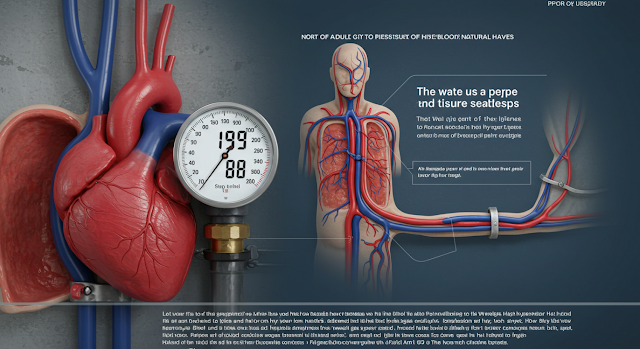Okay, be honest. How many times have you walked into a room only to be completely stumped about why you went in there in the first place? Or had a friend’s name *right there* on the tip of your tongue, but it just wouldn’t surface? We’ve all been there. As we navigate the daily deluge of information, or maybe just feel the gentle nudge of time, our memory can sometimes feel like a sieve.
But what if I told you it doesn’t have to be that way? Inspired by insights from around the globe, including some fascinating tips I stumbled upon from The Guardian and a few Korean perspectives on brain health, I’ve compiled five scientifically sound strategies to give your memory a real boost. Let’s dive in and unlock that brainpower!
5 Key Strategies to Sharpen Your Memory
1. Engage All Your Senses to Absorb Information
Want to make memories stick like superglue? Instead of just passively seeing or hearing something, try to involve all five of your senses. The more sensory information your brain processes, the richer and more enduring the memory is likely to be.
Think about it: when you’re enjoying a cup of coffee, don’t just think, “Yep, coffee time.” Instead, take a moment to note the name of the blend (that’s information!). Inhale the rich aroma (smell).
Feel the warmth of the mug in your hands and the smooth liquid as it goes down (touch and temperature). Savor the slightly bitter taste that lingers on your tongue (taste). By actively engaging multiple senses, you’re essentially creating more pathways in your brain, making that memory more robust and easier to recall later. It’s like building multiple anchors for a single memory.
2. Weave Information into Your Own Stories
Got a list of things you absolutely need to remember? Try turning them into a quirky, memorable story. It doesn’t have to be logical or even make much sense – the key is that it creates a personal connection that helps you retrieve the information later.
Let’s say you need to remember “umbrella,” “wallet,” and “phone.” You could create a sentence like, “Because my wallet was overflowing with cash, I bought a new umbrella, which then miraculously protected my phone from the sudden downpour!” See? Silly, maybe, but it creates a mental link between the items.
This reminds me of a clever trick shared by American neurologist Dr. Richard Restak for remembering parking spot #351:
- 3 (three) sounds like “tree”
- 5 (five) sounds like “hive”
- 1 (one) sounds like “sun”
He vividly imagined a “sun shining on a tree with a beehive hanging from it.” He explained that when he returned to the parking lot, that mental image easily translated back into the number. It’s all about creating those unique and personal connections!
3. Consciously Observe Your Surroundings
Make a conscious effort to pay attention to the details of your environment – the landmarks, the interior design, where people are situated. This isn’t just about remembering a place; it’s a fantastic exercise for enhancing your overall attention and focus.
Next time you’re in a restaurant, for example, after you’ve been seated, close your eyes for a moment and try to recall the painting on the wall you passed, the appearance of the people at the next table, or the view from the window.
It might feel a little fuzzy at first, but with consistent practice, you’ll find your memory for details sharpening and your ability to take in your surroundings improving. It’s like training your brain to be a better detective of your own experiences.
4. Boost Short-Term Memory with “Chunking”
Want to beef up your short-term memory? Try the “chunking” technique. This involves grouping pieces of information into meaningful chunks, making them easier to remember.
Consider trying to memorize this long string of numbers:
‘405829154637204918435263817490914333211’. Most people can only hold about 5 to 9 items in their short-term memory at once (a Harvard study from the 1940s backs this up!). But if you break it down into more manageable chunks, like a phone number – ‘405-829-1546’, ‘372-049-1843’, ‘526-381-7490’, ‘914-333-211’ – it becomes significantly easier to recall. We do this all the time with phone numbers and social security numbers without even thinking about it!
5. Strengthen Your “Working Memory” for Enhanced Cognitive Skills
Beyond simple memorization, if you want to improve your ability to understand, manipulate information, and solve problems, you need to strengthen your “working memory.” This is your brain’s ability to hold information temporarily while actively working with it.
A great example, inspired by the Korean text mentioning the British Prime Minister, is to try and recall as many past Prime Ministers as you can, starting with the current one and working your way backward. Once you have a list, try to mentally reorder them alphabetically.
This exercise forces your brain to actively juggle and rearrange information in your mind.
The more you practice actively processing and reorganizing information, the better you’ll become at considering multiple aspects of a problem simultaneously and handling complex information effectively.
It’s like giving your mental muscles a good workout.
Short-Term vs. Long-Term Memory: Tailored Improvement Strategies
Our memory isn’t a monolithic entity. It’s generally divided into short-term memory, which holds information briefly, and long-term memory, where information is stored for extended periods. To really optimize your recall, it’s helpful to use strategies tailored to each type.
Boosting Short-Term Memory
- Spaced Repetition: We all know repetition helps, but the key is the “spacing.” Reviewing information multiple times with intervals in between is far more effective than cramming it all at once. Think of it as reinforcing the memory trace over time.
- Visualization: Instead of just focusing on words, try to create vivid mental images associated with the information. For example, when trying to remember the word “apple,” picture a bright red, round apple in your mind.
- Chunking: As discussed earlier, grouping information into meaningful units significantly improves short-term retention.
- Context Effect: Linking new information to existing knowledge or experiences can create retrieval cues. When you recall one piece of information, the related information is more likely to surface as well.
Quick Note: Does Cramming Actually Work? While pulling an all-nighter before an exam might temporarily boost your short-term memory, the information often vanishes quickly.
Consistent effort and spaced repetition are the cornerstones of long-term memory improvement.
Strengthening Long-Term Memory
Long-term memory relies on connecting new information with your existing knowledge framework and integrating it meaningfully. It’s about understanding and personalizing the information.
- Connect to Existing Knowledge: When learning something new, actively think about how it relates to things you already know or experiences you’ve had. Build those mental bridges.
- Elaboration: Go beyond simply absorbing information. Ask questions, think critically about it, and compare it to other concepts. Deepen your understanding.
- Storytelling: As we discussed earlier, weaving information into your own narratives or linking it to specific events or experiences makes it far more memorable.
- Reading Actively: Especially when reading fiction, immersing yourself in the story and empathizing with the characters can connect information with emotions and experiences, aiding long-term memory formation.
Effective Daily Memory Management
Our brains aren’t designed to remember everything. They naturally prioritize sending important information to long-term storage and letting less crucial details fade away. Understanding this helps us use our short-term memory more effectively, reducing information overload and allowing us to better remember what truly matters.
- Consistent Spaced Repetition (Cumulative Review): Review what you learned today tomorrow, then review both today’s and tomorrow’s material the day after, and so on. This cumulative approach reinforces learning.
- Utilize Visual Aids: Diagrams, charts, and mind maps can help organize information visually, improving comprehension and recall.
- Engage Multiple Senses: Don’t just read passively. Write things down, say them out loud. Engaging more senses strengthens memory.
- Leverage Downtime: Use short snippets of time, like your commute or breaks, to mentally revisit what you’ve learned.
- Review Before Sleep: Briefly reviewing information right before you go to sleep can help consolidate those memories during sleep.
- Regular Comprehensive Review: Schedule periodic reviews of larger chunks of information (e.g., monthly or quarterly) to prevent forgetting.
- Harness the Testing Effect (Self-Testing): Set small goals and practice retrieval by quizzing yourself or simulating tests. This strengthens memory and boosts motivation.
Final Thoughts on Memory Improvement Techniques
While some memory decline can feel like an inevitable part of life, it’s certainly not something we have to passively accept. By consistently practicing these science-backed memory improvement techniques and incorporating them into your daily routine, you can revitalize your brain and enhance your ability to remember more, for longer. So, why not start small today and unlock your brain’s full potential?
While the occasional “room entry amnesia” or tip-of-the-tongue moment might make memory decline feel inevitable, the science is clear: it is not something we have to passively accept.
Your brain is incredibly adaptable. By consistently practicing these science-backed techniques—whether it’s using storytelling to remember a grocery list or practicing spaced repetition to master a new skill—you are actively strengthening the neurological pathways responsible for storage and retrieval.
Memory improvement isn’t about finding a single magic trick; it’s about making small, consistent changes to how you interact with information every day. It’s about being more present, more engaging, and more intentional with your learning.
So, why not start small today? Pick just one or two strategies—like consciously observing your surroundings or trying the 20-80% chunking rule—and see the difference it makes. Your most powerful memory is waiting to be unlocked.








